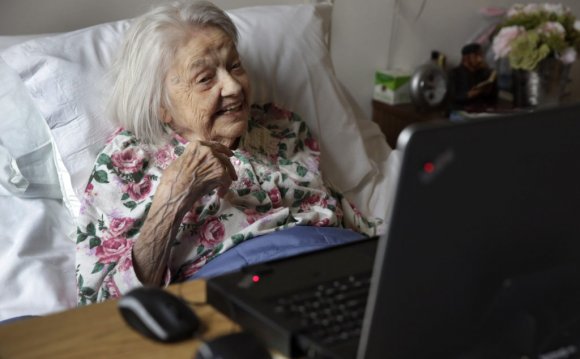
Dementia care in nursing homes Central American

Residential Care
If the person with Alzheimer's or other alzhiemer's disease likes a communnal living environment or requires even more attention than is offered at home, a domestic facility could be the most suitable choice. Various kinds of services offer different amounts of treatment, with respect to the man or woman's requirements.
Forms of domestic care
A good long-term care facility should feel comfortable and homelike. Feeling yourself offers privacy and provides possibilities to talk with other residents.
Learn about different forms of domestic treatment to find out which most useful meets the requirements of the individual with alzhiemer's disease.
Pension housing
Pension housing could be appropriate for those with early-stage Alzheimer's disease who're still able to care for on their own individually. People may be able to live alone securely, but has difficulty controlling an entire dwelling. Typically, this kind of senior housing provides restricted direction and may offer options for personal tasks, transportation along with other amenities.
Assisted living (also known as board and care, person lifestyle, supported care)
Assisted residing bridges the space between residing individually and residing in a nursing home. Assisted lifestyle typically provides a variety of housing, dishes, supporting solutions and health care. Assisted residing residences generally speaking provide 24-hour staff, outdoor recreation, housekeeping, washing and transport. Residents may choose which solutions they get from center such assistance with washing, dressing, consuming or medication reminders. Prices vary with regards to the services supplied. The federal government doesn't regulate assisted residing and definitions of assisted lifestyle vary from condition to state. Assisted living facilities may or may not provide solutions specifically designed if you have dementia, so it's crucial that you ask.
Assisted living facilities (also known as skilled nursing facility, long-term care facility, custodial care)
Assisted living facilities offer round-the-clock attention and long-lasting treatment. Many nursing facilities have actually services and staff to handle problems such as for instance nutrition, care planning, relaxation, spirituality and health care bills. Various nursing facilities have various staff-to-resident ratios. Also, the employees at one medical residence could have more knowledge or instruction with alzhiemer's disease compared to staff at another. Nursing facilities are certified by the state and managed by the government.
Alzheimer special treatment devices [(SCUs) also known as memory attention units]
SCUs are created to meet the certain requirements of an individual with Alzheimer's disease illness along with other dementias. SCUs can take numerous kinds and exist within a lot of different domestic treatment. Such products oftentimes are group options in which people with dementia tend to be grouped together on a floor or a unit within a larger residential treatment facility. Some states have legislation calling for nursing facilities and assisted residing residences to share with just what specialized services their SCU offers, including an experienced staff, skilled activities, capability of staff to care for residents with behavioral needs and costs. Once you see a facility, require their particular Unique Care Unit Disclosure kind.
Continuing treatment your retirement communities (CCRC)
CCRCs supply various degrees of attention (independent, assisted living and medical home) according to individual requirements. A resident has the capacity to move through the entire various degrees of treatment inside the neighborhood if their needs change. Repayment for these forms of facilities include a preliminary entry charge with subsequent monthly charges or payment may be based solely on monthly fees.
When residing home isn't any much longer an alternative
There will come a time when the individual with Alzheimer's disease infection or dementia need even more attention than is supplied in the home. During the middle phases of Alzheimer's disease, it will become necessary to give you 24-hour guidance maintain anyone with dementia secure. Whilst the disease progresses to the late-stages, round-the-clock attention requirements be much more intensive.













